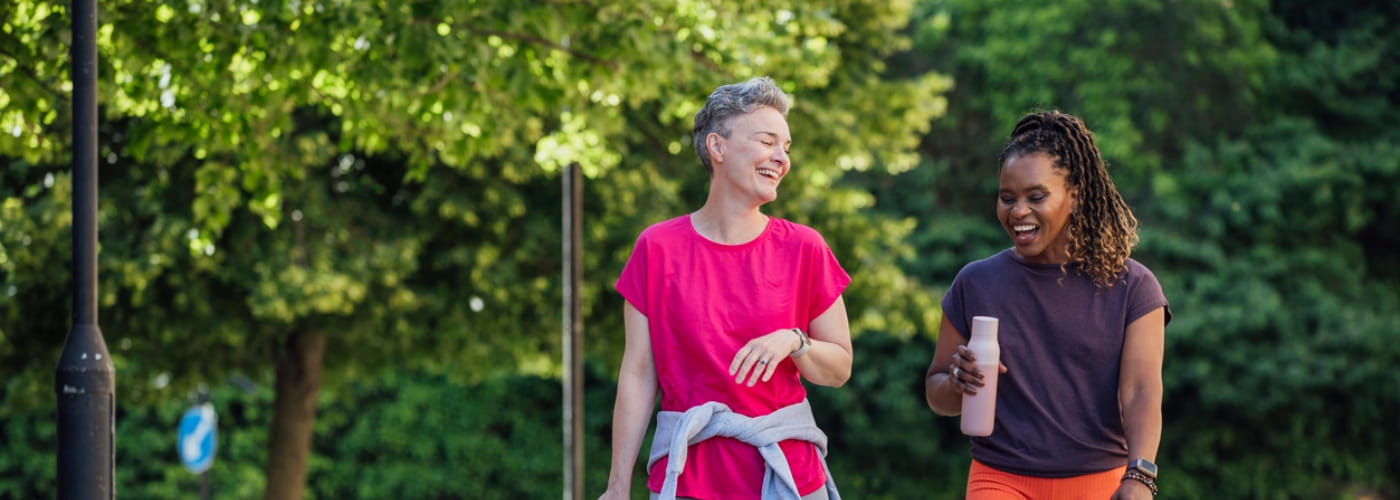Bone up on exercise to fight osteoporosis

Bone health plays a significant role in our quality of life. Strong bones allow us to participate in activities we enjoy and live independently later in life by lowering the risk of fractures and chronic pain due to posture-related changes. Although we naturally lose bone density with age, there are many things we can do to prevent or delay this loss. Chief among them? Exercise.
"Ongoing, consistent exercise has to be a part of every woman's life," explains Deborah Bosley, PT, a board-certified Clinical Specialist in Geriatric Physical Therapy with Main Line Health and trained BoneFit™ professional. "Regardless of where you are starting, you have the ability to positively impact your bone density in the future."
Exercises for stronger bones
Bosley recommends engaging in at least 30 minutes of weight-bearing cardiovascular exercise, such as walking, on most days. She also advises incorporating resistance training, such as lifting free weights or using resistance bands, a few days a week. These can help lower your risk of osteoporosis, a disease that causes bones to become weak and thin, making them more likely to break.
"In addition to preventing or slowing bone loss, exercise benefits us in countless ways, including helping to maintain better posture," she explains. "Good posture is especially important for those with osteoporosis because it helps reduce the risk for compression fractures and dangerous falls."
A multifaceted approach
When it comes to better skeletal health, exercise is just one piece of the puzzle. To guide and mentor women with low bone density, Main Line Health is developing a multifaceted osteoporosis wellness program. Located at Bryn Mawr Rehab, the group program will begin this fall and include:
- Personalized exercises that focus on balance, stretching, posture and resistance training
- Guidance on proper body mechanics to help avoid fractures/injury
- Education regarding nutrition, supplements and other lifestyle factors that boost bone health
Being proactive about your bone health
Bone density tests, also known as DEXA scans, are noninvasive, take just minutes to perform and can help detect bone fractures and lower the risk of osteoporosis — two common health risks for women.
Women have a higher chance of getting osteoporosis after menopause due to lower estrogen levels, so these scans are recommended for all women ages 65 and older. They are also recommended for younger women who may be at greater risk for bone loss or osteoporosis. Risk factors include:
- Low body weight
- Poor nutrition
- Smoking
- Family history of bone loss or osteoporosis
- Personal history of previous bone fracture or nonestrogen-supported menopause
- Taking certain medications, such as steroids, selective serotonin reuptake inhibitors (SSRIs) and proton pump inhibitors (PPIs)
Talk with your primary care doctor about whether a bone density test is right for you.
Next steps:
Meet Deborah Bosley, PT
Make an imaging appointment online
Learn more about outpatient therapy at Main Line Health
 Content you want, delivered to your inbox
Content you want, delivered to your inbox
Want to get the latest health and wellness articles delivered right to your inbox?
Subscribe to the Well Ahead Newsletter.
